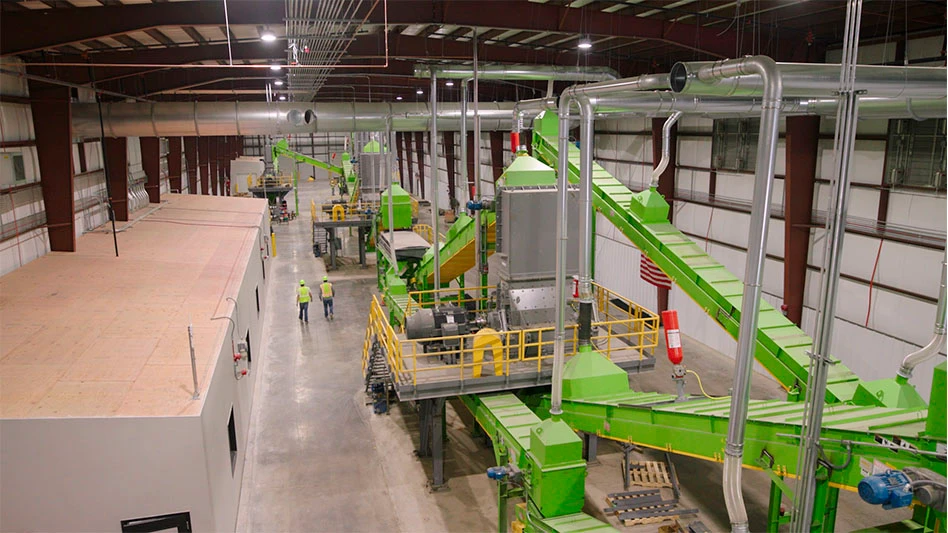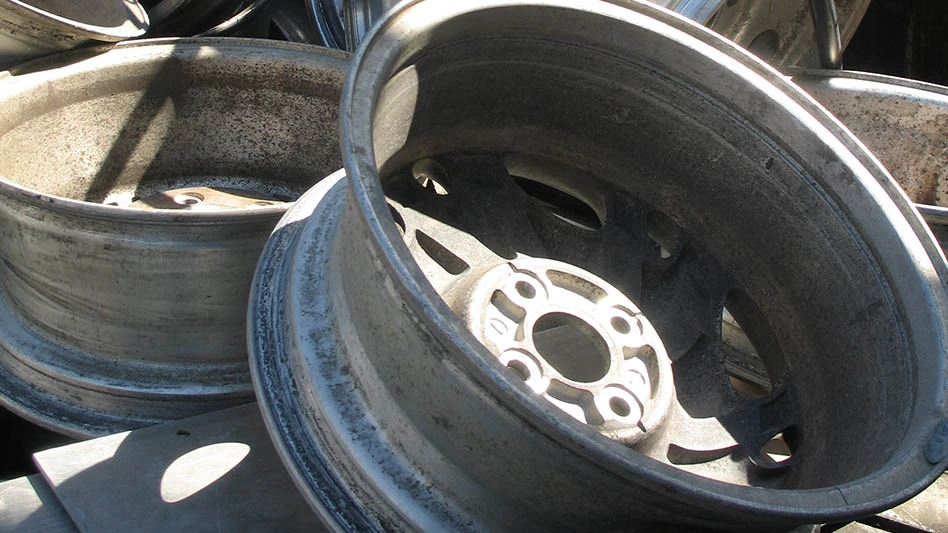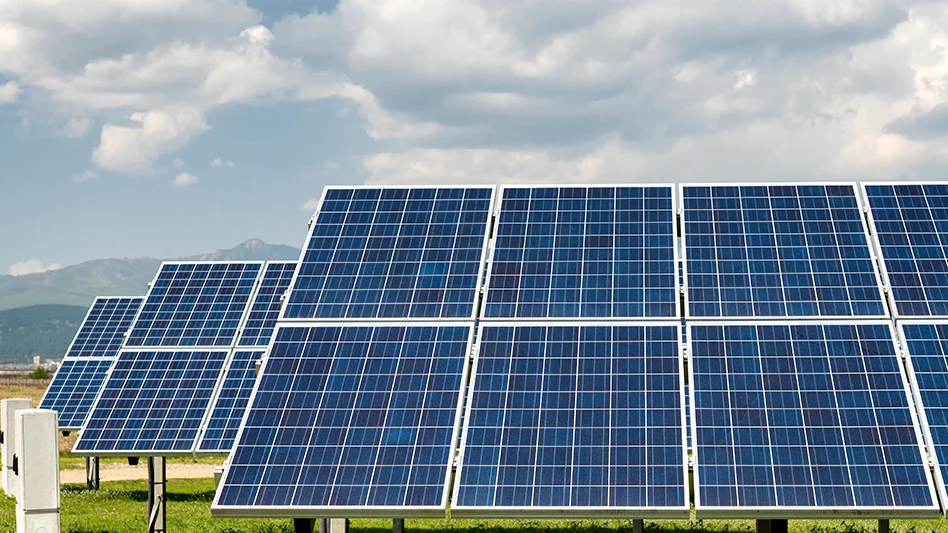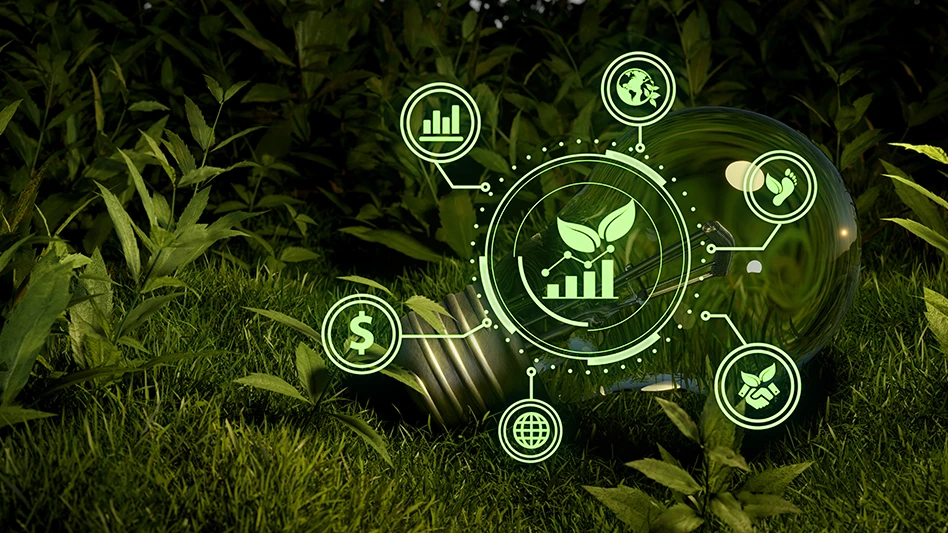
Photo courtesy of Regen Fiber
Fairfax, Iowa-based Regen Fiber has hosted an opening ceremony and has commenced production at the end-of-life wind turbine blade recycling facility in its headquarters city.
The facility has the potential to create an end market for wind turbine scrap while also creating a recycled-content product for producers of concrete and asphalt
The company’s landfill diversion process involves extracting reusable components and then shredding the blades and preparing materials such as fiberglass mesh and polyester resins into products that can be used in concrete and asphalt production processes.
The specialty recycling company, which announced its startup last January, says its “all-mechanical recycling process avoids using heat or chemicals, providing a more environmentally friendly solution.
Regen Fiber is owned by the Travero logistics subsidiary of Madison, Wisconsin-based electric and natural gas utility company Alliant Energy. The utility company’s website indicates it operates 10 wind farms and is a partner in two more. Those facilities combined operate some 985 turbines.
“We are thrilled to offer this innovative solution to concrete and asphalt producers both locally and nationwide,” says Lisha Coffey, president of Travero. “Our process not only provides a sustainable method of disposing of wind turbine blades but also supports businesses in achieving their sustainability goals and reducing the carbon footprint on construction projects that use our products.”
Jeff Woods, director of business development at Travero, adds, “Our process recycles 100 percent of the wind turbine blade, creating fibers and additives that enhance the durability and environmental resistance of concrete and asphalt. This improves the structural integrity of roads and buildings, making them more resilient.”
Regen says operating on a one-shift-per-day schedule, it expects to process more than 30,000 tons of blades each year at the Fairfax facility, with the ability to increase production in the future.
In addition to the end-of-life blade recycling facility in Fairfax, Regen operates a facility in Des Moines, Iowa, that recycles new turbine blade manufacturing scrap material. The firm also has a blade processing facility in Lubbock, Texas, located to handle end-of-life blades from throughout the wind power-intensive southwestern United States.
Latest from Recycling Today
- RMDAS April figures show recycled steel price setback
- Steer World offers PEX plastic recycling machine
- New recycling grant program launches in Massachusetts
- Tire Recycling Foundation names executive director
- Dock 7 named 2025 Exporter of the Year at New Jersey International Trade Awards
- Waste Connections reports ‘better than expected’ Q1 results
- Commentary: How EPR is transforming the packaging industry
- Acerinox names new North American Stainless CEO





